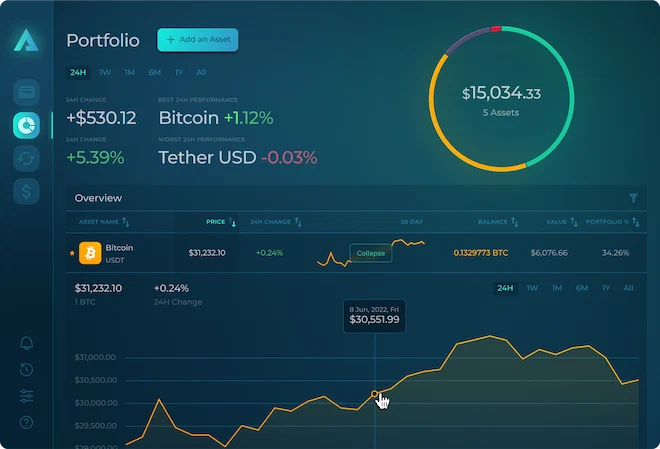Understanding Gas Fees - How They Work
Jul 17, 2023Understanding Gas Fees - How They Work
All blockchain transactions require the expenditure of energy to be processed. This energy takes the form of computations, storage, and bandwidth. Utilizing this energy is connected with some costs. This is where the concept of gas fees comes into play.
What are Gas Fees in Crypto?
When a user initiates a transaction they are required to pay gas fees as compensation to validators for their efforts. Validators in turn need to be remunerated for processing the user's request thereby facilitating the execution of the transaction.
Gas fees hold importance within the system as they motivate users to assign value to their transactions. This helps reduce the number of transactions that could potentially disrupt the network. Validators play a role in gas feed utilization by processing transactions on the system and receiving gas fees as a reward for their contributions. Native cryptocurrencies settle gas fees within their network thereby establishing their significance in gas fee-based transactions.
Determining Gas Fees
The calculation of gas fees takes into account factors such as transaction complexity, network congestion, and prevailing gas prices.
Users have the option to minimize gas fees by selecting transactions, with gas prices to save costs. However, opting for gas prices may result in processing times for the transaction to be successfully completed. During periods of network congestion gas fees tend to rise as there is a demand for validators. To optimize gas fees users have the option to monitor the gas price on the network and select the rate to employ.
Distinguishing Transaction Fees from Gas Fees
It is worth noting that transaction fees are distinct from gas fees primarily observed in systems like banks.
- Transaction fees often represent a percentage of the processed amount.
- Conversely, gas fees are computed based on the resources utilized for transaction processing.
While transaction fees are deployed to incentivize nodes in processing transactions within systems they may not be as efficient as gas fees.
Gas Fees in Smart Contract Blockchains
In contract blockchains gas fees play a role in motivating validators to process intricate smart contracts. Within DeFi services gas fees hold importance in executing financial transactions such as loans, trades, and yield farming.
The Significance of Gas Fees in Ethereum Proof-of-Stake
To comprehend the concept of gas fees in Ethereum it is essential to grasp the notions of gas limit and gas price.
- Gas limit represents the quantity of gas that a transaction can consume
- Gas price determines the value of each unit of gas, in Wei (a unit of Ethereum currency). Gas fees play a role in determining the cost of a transaction as they are paid to Ethereum validators as an incentive for validating transactions. This incentivization ensures the functioning of the network.
The supply and demand of transactions greatly influence Gas prices on the Ethereum network. During times of high transaction volume Gas prices tend to increase due to heightened competition for space. However, Ethereum has implemented a gas fee system that allows users to adjust their fees based on the congestion of the network. This adaptive approach ensures prompt transaction processing during periods of demand.
Validators and Gas Fees
Validators, essential for maintaining the integrity of the blockchain, play a role in the Ethereum ecosystem. Unlike Proof-of-Work, which relies on miners Ethereum employs a Proof-of-Stake algorithm where validators validate transactions.
| Source: Techblog.geekyants.com |
In return for their efforts, validators are rewarded with gas fees. It's worth noting that validators can also face penalties if they fail to perform their validation duties.
Integrity and Game Theory
To uphold the integrity of the Ethereum network game theory principles come into play. These principles help ensure that participants act in accordance with the network's rules and incentives promoting trust and reliability throughout the ecosystem.
The concept of incentives plays a role in ensuring the honesty and accuracy of validators in the network. By imposing penalties for rule violations validators are motivated to act in the interests of the network. This self-regulating nature distinguishes blockchain from institutions that rely on regulators for enforcement.
Conclusion
In the evolving blockchain industry gas fees hold importance and are expected to gain even more significance. To optimize transaction costs and tackle associated challenges it becomes essential to understand how gas fees operate. As the industry grows gas fees will likely stabilize, resulting in cost transactions. Being enthusiasts and investors it is necessary to monitor gas fee trends diligently and make informed decisions to avoid unnecessary high costs while engaging in blockchain transactions.


